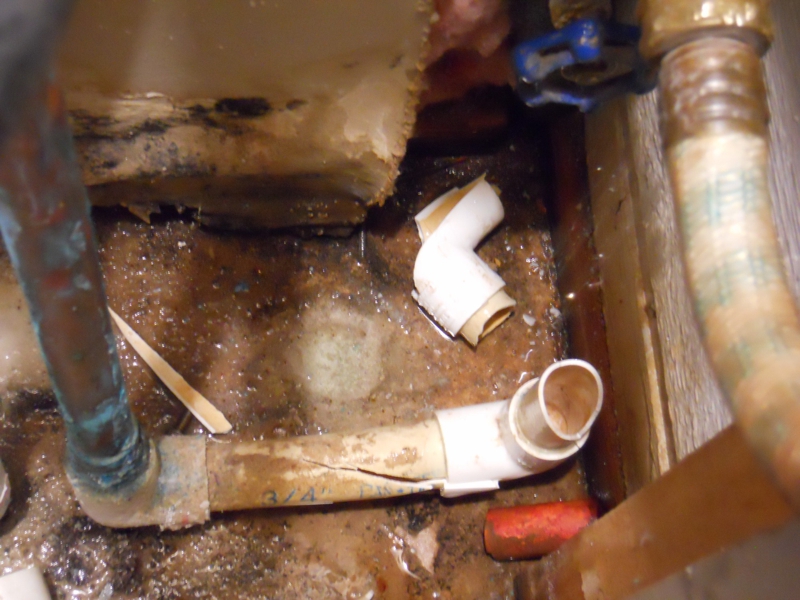Rather than obsess on how to save money, at CYC we focus on creating, building, maintaining and protecting wealth – regardless of how much you’ve already accumulated. We maintain that few measures that purport to save money are worth the time. (If you don’t believe us, go visit the simpleton who cans his own preserves and then calculates the savings to the second decimal place. He’s easy to find.)
That doesn’t mean we can’t write about saving money. But as usual, we prefer to drop anchor where the big fish are. Given the choice between pocketing .07¢ on every serving of peach compote or saving thousands with a couple of keystrokes, we’ll take the latter every time. (And then, of course, invest the savings.)
Do you own a house? You should, given that the combination of prices and financing is at a historical nadir.
Once you’ve got a house, get a home protection plan. It’s not quite insurance, but the differences are inconsequential. For a nominal yearly fee, a plan will cover you if something breaks. It will.
NOTE: This is not an infomercial. American Home Shield isn’t paying us for this. We should probably charge them, but they don’t know we’re writing about this and we didn’t tell them. We’re just trying to sell you on the concept of spending a few bucks today to avoid spending a ton later.
CYC World Headquarters has a policy that costs less than $54 a month. Every time something breaks – something that requires a professional – there’s a $60 service fee.
There’s NO LIMIT to the number of calls we can make. It says so right there in the company literature. Practically speaking, even if everything you own breaks, that wouldn’t amount to more than 20 items in a year. And presumably, every warranty replacement would remain in good condition throughout the remainder of the year.
The policy covers easily repairable stuff that isn’t worth the price of a service call (e.g. smoke detectors, doorbells), but also covers other items that a lay person can spend the better part of a week toiling over before admitting defeat (e.g. water heaters; stupid fancy Swedish dishwashers that we bought because they looked so alluring on the retailer’s showroom floor, but not alluring enough to save the retailer from receivership, and which no one in the six-state area seemed to know how to fix.)
On average, a heating unit costs almost $2700 to repair; or more than 4 years’ worth of payments to the warrantor. An air conditioning unit costs over 3 years’ worth. Even a water heater can cost 11 months’ worth.
How does our warranty company make money? Who cares? Not our problem.
Wait, that’s not a fair nor satisfactory answer. We preach throughout the book that you should look at every transaction from the other party’s perspective. Determine if they’re screwing you over, or if they’re merely getting a fair price for a good service. In AHS’s case, the company profits by spreading out risk. AHS can almost guarantee its network of electrician and plumber affiliates a certain amount of work in each region where it has policyholders.
There’s an ancillary benefit too, which AHS doesn’t even publicize all that much. They give us non-obvious advice about how to maintain our things. (Non-obvious advice is the only kind we have any use for here at Control Your Cash, which you know if you’ve read us for any length.) For instance, who knew that a few pounds of lemon juice ice cubes will remove debris buildup on the sharp edges of a garbage disposal and put an end to that cacophonous whirring metal sound? It works in seconds, and it saves a visit from a plumber who’d rather be doing something challenging like a main line replacement or a boiler conversion.
That’s a win-win for both AHS and us: it reduces the likelihood that AHS will have to pay a technician, and it reduces the likelihood that we’ll require one in the first place. AHS would just as soon collect our money without having to do anything, and we’d just as soon not have stuff break. Plus we’re getting free, actionable knowledge: put into practice, that’s the very foundation of a worthwhile and productive life.
AHS doesn’t cover everything, but it covers enough. Fine, so we have to pay for own electrical face plates. Big deal. The peace of mind of knowing that we’ll never have to fix a well pump ourselves is more than worth the monthly fees.
**This article is featured in the Carnival of Personal Finance 329: California Dreaming Edition**




